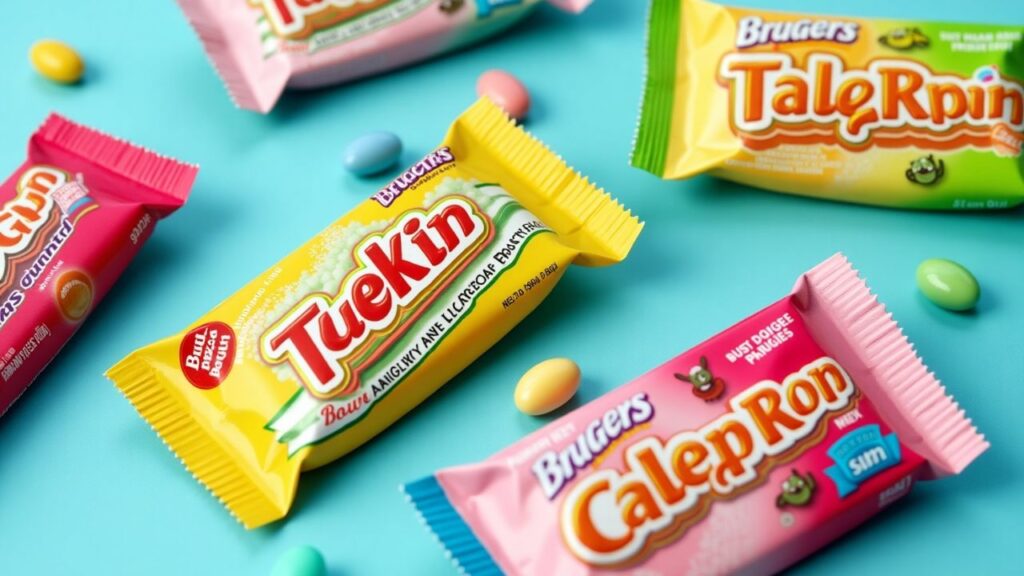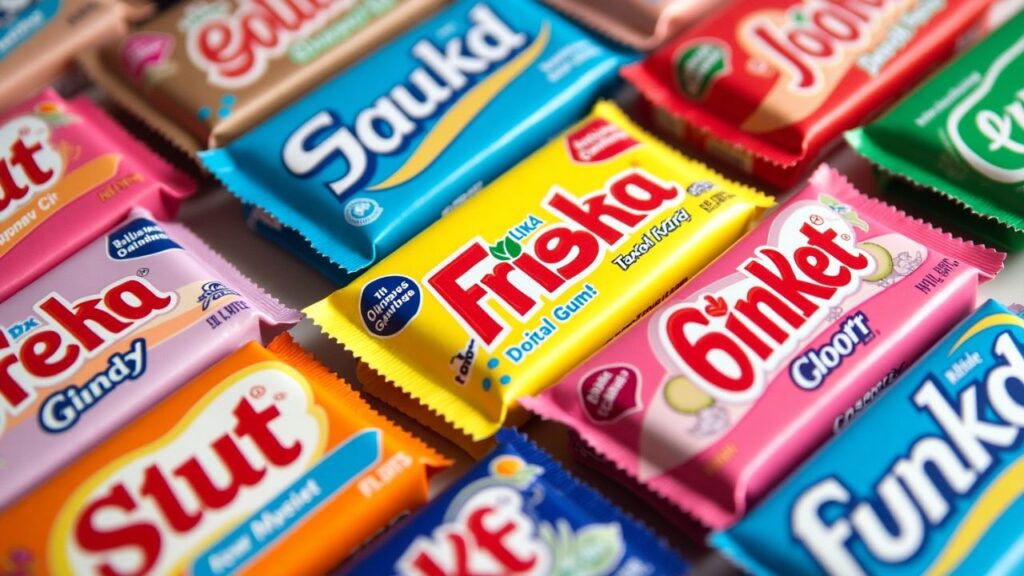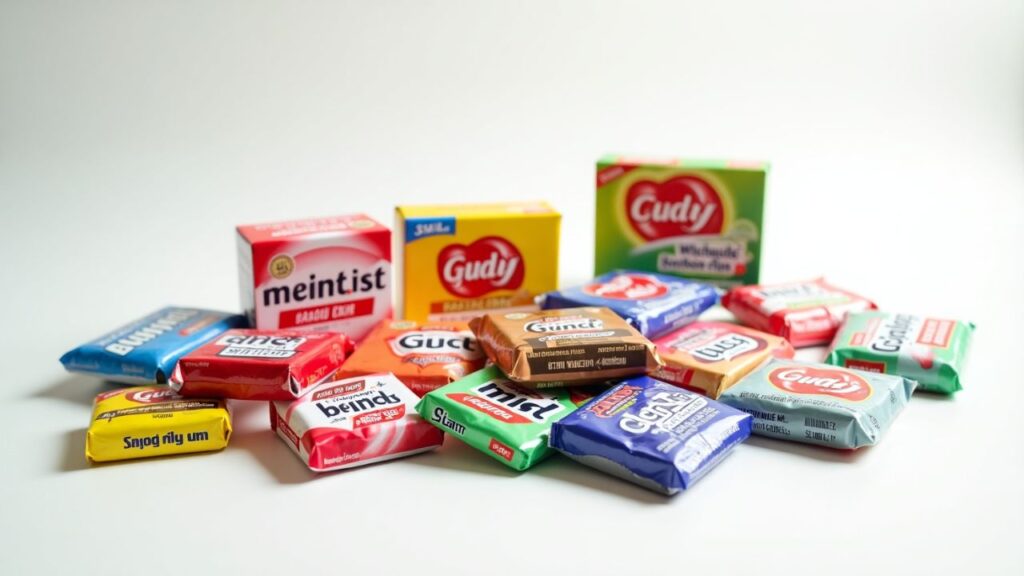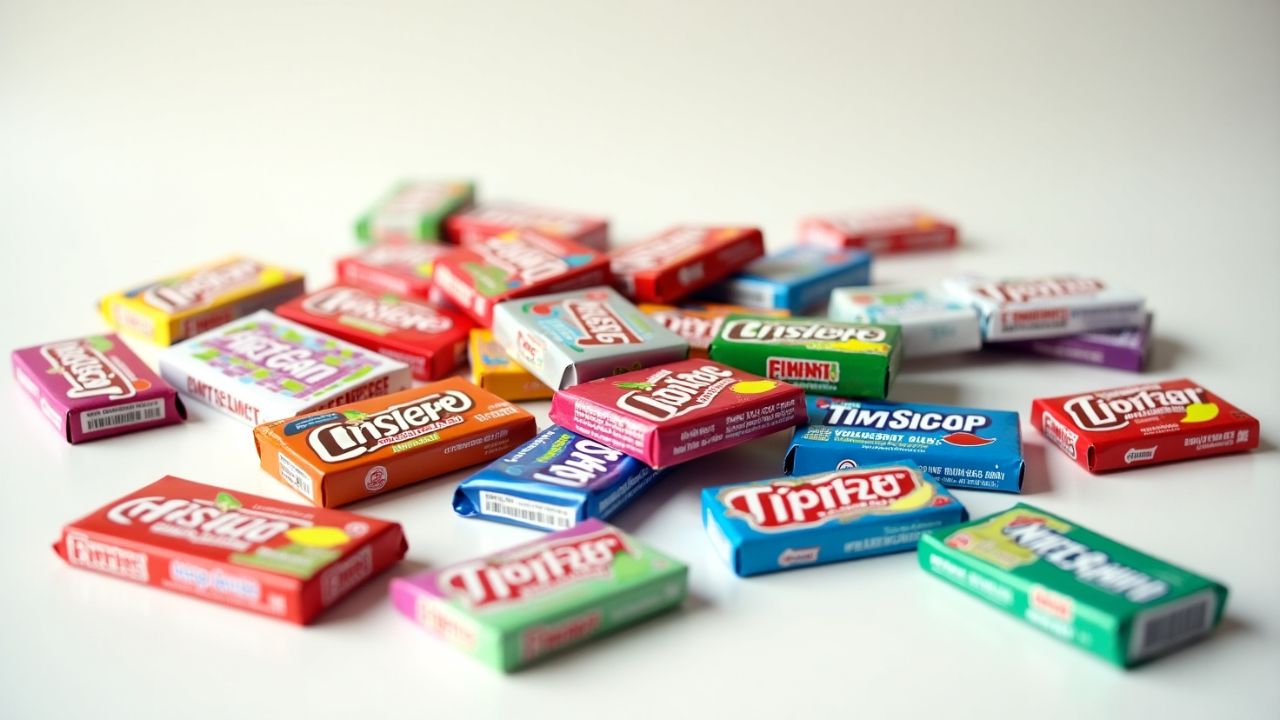Living such simple routines as eating or speaking, or sometimes even laughing may pose challenges for chewing gum for dentures. Dentures are beautiful in creating your looks, but they at times cause problems like discomfort, misfit, or difficulty eating soft types of food. That is where denture-specific chewing gum is particularly useful. Although normal gum might get stuck in dentures causing problems denture friendly gum acts as a supportive remedy. The gum increases the stability of your dentures, reduces irritation where the appliance comes into contact with your gums, and may help you keep your breath fresh. Some gums promote production of saliva and therefore improves oral hygiene and reduces the occurrence of dry mouth, a common complaint among denture wearers. A good choice of chewing gum in your daily habits can uplift the way you feel and feel more relaxed in a day.

What Is Denture-Friendly Chewing Gum?
Specific kind of denture-friendly chewing gum is intended for people that wear false teeth. Old-fashioned gum formulations can contain sugars that adhere to the teeth or solid elements that can move the dentures around or leave upon accumulation on the body of the gum. Meanwhile, denture-friendly gum does not use strong, adhesive ingredients to keep them from clinging onto your dentures. Some denture safe gums contain xylitol, another sweetener that is well suited for fighting bacteria, protocols the oral plaque,and leaves a fresh breath, all the while avoiding damage to the dentures. Some brands use mild adhesives in the creation of their product to make your dentures more stable as you bite. See it as a handy solution that solves many issues at a time: It is a breath freshener, saliva producer, and denture support in one product.
Benefits of Chewing Gum for Denture Users
The dental wearers gum formulated has unexpected benefits to mention. First up, it increases the production of saliva, the body’s own mouth cleaner. Saliva is of a lot of use in cleaning of food leftovers, relieving dryness and maintaining the healthy status of your oral cavity. Moreover, chewing helps relax jaw muscles, so their health is promoted, and you will be able to preserve your facial form and reduce sunken cheeks that a prolonged use of dentures is associated with. Third, certain denture gums offer a mild adhesive advantage to keep your false teeth well moved during meals or discussions. Besides, no sugar denture gums can protect your natural teeth from decay onset. Such an exercise will help to preserve your mouth health and enhance your overall sense of self.
Denture Adhesive Gum: How It Works
Denture gum adhesive combines the convenience of chewing gum with a quiet adhesive feature. During chewing, the gum turns out to be a flexible thin layer that is smooth sitting on between your dentures and gums. This layer gives a cushion like effect, which helps tighten the fit of your dentures making them more secure as opposed to using conventional adhesive products. It is best when a temporary fix is needed for example when planning for a social occasion or in foods. However, it is important to remember that denture adhesive gum cannot substitute for a good fit of denture. Adhesive gum gives immediate comfort, but the denture fit needs to be eliminated as the cause of loose dentures; this should be a priority.
Choosing the Best Chewing Gum for False Teeth
Coming undone, the thin, and the number of tooth sizes- should be considered when choosing gum for dentures. Choose a sugar-free one to avoid sticking sticky particles onto your dentures and dedicate to bacterial irritation. Choose gummies with xylitol on it because it helps to cleanse your breath and neutralize the harmful bacteria. Think of the gum’s consistency – softer textures are less abrasive on your gums, and they won’t raise as much risk of your dentures becoming detached. Freedent, SoftBite, and Dentures are popular but your dentist may recommend other appropriate brands also. Do not chew skip gums with tough or crunchy elements because it may alter pressure distribution properly on your dentures. In case you are to introduce a new product into the market, you can test a small portion of it first in order to know how your body will react.

Common Mistakes to Avoid with chewing gum for dentures
Even some of the most effective products will cause problems if they are not being used correctly. Rinsing the mouth excessively with the gum for a long time may result in jaw strain or gum irritation. Don’t chew for more than 10–15 minutes but use chewing gum instead. The abuse of gum could be a blunder, obtaining non-denture-suggested products: rough textures or sugary leftovers can harm your false teeth or impair them. A large number of individuals do not clean dentures adequately after gum use, which leaves a residue and forms an ideal environment for bacteria to thrive. It is advisable to clean your dentures after you chew gum using water. Yet, please do not count on gum to adjust the discomfort of inapt dentures. If you realize your appliance is loose or painful, seek assistance from your dentist rather than using gum to provide a temporary fix.
How to Use Chewing Gum with Dentures
Try gum with dentures, and yet with a few helpful strategies, you will be able to achieve the best results. Promptly clean your dentures and rinse your mouth, removing the last residue. Bit onto a small piece of denture-safe gum (equivalent to a little less than half a piece) and chew it slowly until it becomes soft. Forbid yourself from chewing aggressively, let the gum cool down, and adapt to the temperature of the body. Immediately that the gum is softened, press it to the roof of your mouth or bottom of your dentures to enhance their fit. This is very helpful before eating or some major talks. Take care to discard the used gum – again looking towards it might introduce bacteria into your mouth. Ultimately, establishing this step as a habit of your regular routine will make it as normal and easy, as daily habits are.
Denture Care Tips Beyond Chewing Gum
Gum can help but it’s proper denture care that will ensure it doesn’t only last long, but also be comfortable. Avoid hot water at all costs because it can change the form or structure of your dentures. Leave your dentures in a milder cleaning solution to keep moisture and eliminate odors. Keep a watch on your dentures for signs of wear or misfit and arrange for annual dental checkups to take care of issues. Honoring these habits as well as denture-friendly gum can promote your smile’s health, safety, and freshness.
The Future of Denture-Friendly Products
New technologies and products for denture users are being introduced quite fast in the world of dental. Scientists are exploring long-lasting adhesive gums, as well as probiotics to differentiate the gums, and flavors that are fresh all day long. It is possible that with a series of improvements to 3D printing technologies, one may never need to use adhesives, with personalized dentures being of use. At the same time, sustainable denture gums made from biodegradable materials are gaining prominence, attracting the eyes of the users who will be interested in decreased ecological footprint. It is advisable to keep up to date about these developments to ensure that you reap fully from the latest technologies for dental care.

Understanding the Ingredients in Denture-Safe Gum
Some components of gum are not advisable to use to persons with dentures. Xylitol has one of its outstanding benefits where it contains a natural sweetener that does not promote the multiplication of harmful bacteria. It helps to balance the mouth acidity, hence reducing infections. Avoid eating gums containing sugar, glucose or corn syrup, as this may cause sticking and contribute to mouth decay for dentures. Some gums can have gentle adhesive, such as food-grade cellulose, to enhance how easily dentures can adhere to the mouth; however, others can make use of calcium or vitamin supplements to enhance dental health. Check carefully on the list of ingredients for safety and compatibility with your dentures and contact your dentist if you are uncertain which product to select.
Environmental Considerations for Denture Gum Users
As emphasis on sustainability as a value continues to grow, persons who wear dentures are seeking gums that are eco-friendly. Standard production of gum depends on synthetic rubber which cannot break down in the environment. Instead, today’s producers use environmentally friendly materials such as chicle or plant-based ingredients that will degrade more easily. Select sucker brands that sell their products in recyclable or compostable wrapping to reduce the impact to the environment. While the range of eco-friendly gum currently available is small, there is growing consumer demand that is motivating manufacturers to create new products.
Regular Gum vs. Denture-Friendly Gum
| Feature | Regular Gum | Denture-Friendly Gum |
| Stickiness | Sticks like glue 🍬 (can yank dentures!) | Gentle grip 🌟 (keeps dentures secure!) |
| Sweeteners | Often loaded with sugar 🚫 | Uses xylitol ✅ (fights bad breath + safe) |
| Texture | Hard or crunchy 😖 (risky for dentures) | Soft + flexible 😌 (gentle on gums!) |
| Purpose | Just for fun 🎉 | Multitasker! Freshens breath + stabilizes dentures 💪 |
| Where to Buy | Everywhere (gas stations, stores) 🛒 | Pharmacies, online, or dentist-recommended 🩺 |
Conclusion
Chewing gum on dentures is more than convenient, it is important in your oral health and self-confidence. Proper use of sugar-free, denture-safe gum allows you to experience fresher breath, firmer dentures and a healthier jaw. Please don’t forget to also maintain good denture hygiene, see the dentist regularly, and preserve your smile in both health and likeness. Choosing the right gum will enable you to again laugh at the dinner table, eat, or socialize being sure of yourself.
FAQ’s
1. Can I use regular gum if I don’t have denture-specific gum?
No – conventional gum products have the potential of making dentures adhere, break, or become displaced. Have some sugar-free denture-safe gum for peace of mind while chewing.
2. Will chewing gum make my dentures fit better permanently?
Yes, chewing gum may give you a momentary hold, but it won’t fix problems with dentures that don’t fit. If you have dentures slipping frequently, contact your dentist.
3. How often should I chew gum with dentures?
Daily oral hygiene steps with 2–3 short brushings of 10–15 minutes each is safe. You can create jaw strain or gum irritation if you spend too much time on brushing.
4. Is denture gum safe for partial dentures?
Yes! Try not to chew near your natural teeth to reduce staining residue build up. Stick to denture-safe brands.
5. Where can I buy denture-friendly chewing gum?
You are able to acquire brands like FREEDENT or SOFT BITE at Drug stores, Groceries or Digital stores. Your dental professional might give you some tips on the best brands to try.
